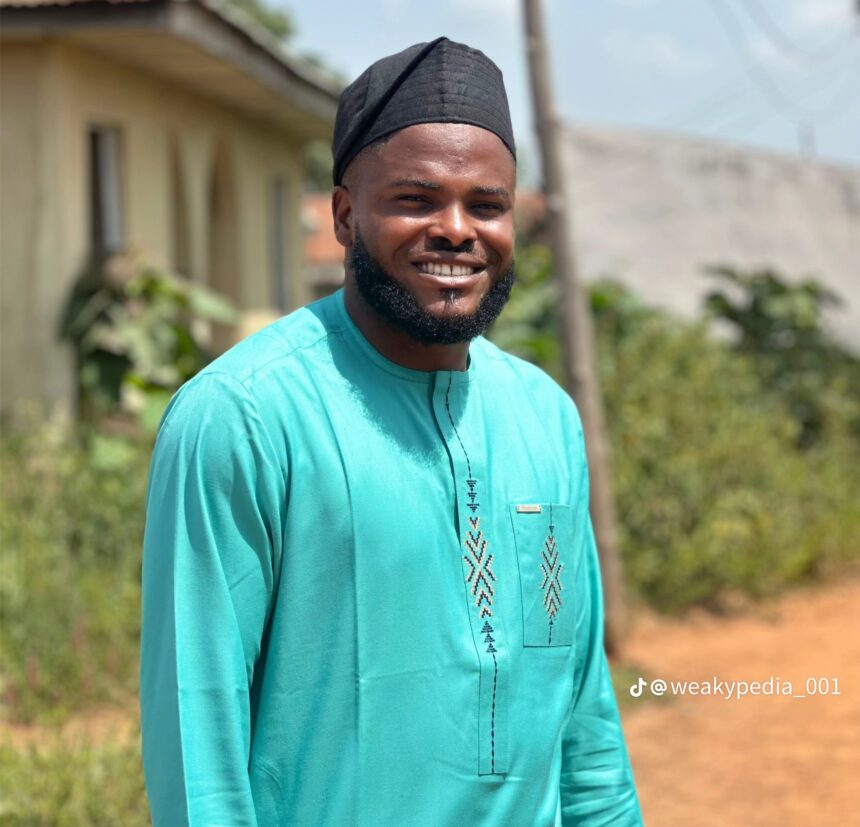In a small classroom in Ilorin, the capital city of Kwara State in Nigeria, mathematics sounds different, not because the formulas have changed, but because the language has.
Here, educator Abdulwakeel Aderemi Olajuwon Oladepo, founder of Weakypedia Linchpin Consult and Educational Service (LCES), teaches mathematics in Yoruba, an indigenous language spoken across southwestern Nigeria.
For many students, it is the first time equations make sense, but for Olajuwon, the decision is both practical and cultural.
“When you ask some students to give an account of an incident in English, they won’t be able to express themselves properly,” he explained. “We have made English compulsory in our schools and prohibited native languages, even in teaching subjects like biology, chemistry, physics, and mathematics.”
His mission reflects a growing international conversation on how mother-tongue education can transform learning outcomes. Former Nigerian Senator Rochas Okorocha once captured this dilemma openly.
“Do you know why mathematics is difficult for me?” he asked. “It’s difficult because nobody has ever been able to explain it to me in Igbo. If someone ever teaches me why 2x plus 3x equals 5x in my language, nobody will beat me in mathematics in this world.”
For Olajuwon, this is not theory. It is lived reality. And he has chosen to do something about it, free of charge.
Olajuwon’s Personal Struggle and Transformation
Olajuwon’s journey began far from the spotlight. Born in Osogbo, Osun State, and raised partly in Ilorin and Oyo State, he once believed he was exceptional in mathematics, until a painful turning point.
“I always believed I was good in mathematics until I moved to Kishi in Oyo State for my senior secondary school in 2005,” he recalled.
New to physics and chemistry, he scored 19 out of 70 in an examination, earning public punishment on the school assembly grounds. The humiliation changed him.
“That disgrace pushed me to move closer to some seniors in SS3 who were good in physics,” he said. With their guidance, he improved rapidly. “There were positive changes.”
After graduating, he immediately began free coaching in mathematics and physics, teaching students from low-income communities. Unknown to him, one of his early students often recorded his lessons.
When Olajuwon saw the footage, he decided to upload the videos to TikTok, an act that would eventually draw thousands of learners.
What started as a survival strategy became a calling. “Slow learners are always the best teachers,” he often says, reflecting on his own struggle.
The Growth of Weakypedia Linchpin Consult and Educational Service
Weakypedia LCES was born out of these grassroots experiences. Although Olajuwon initially funded everything himself, supporters soon began to emerge from around Nigeria and abroad.
One of his earliest fans lived in Canada. “He gave me money for a mic, power bank, and a tripod to better serve my audience,” he said.
Buoyed by this unexpected support, he committed fully to the mission in February 2025.
Today, Techparley Africa uncovered that Weakypedia LCES offers free or sponsored learning in:
IJMB, ICAN, JUPEB, ATS, NABTEB, TOEFL, WAEC, NECO, GCE, JAMB, and POST-UTME. But the real story is the impact.
“The happiness for me is that the students are turning out to be the best in their schools,” Olajuwon shared. “Because we teach them in the language they understand best.”
His teaching method, mathematics explained in Yoruba, has become a lifeline for thousands of students who previously struggled to grasp abstract concepts in English.
Supporters attest to the change. “We pray that someday, these students will talk about you at the highest level,” a representative of Ilorin Grammar School said, thanking him for his contributions.
Building Hope: Free Lesson Centre and Land Acquisitions
In 2025, Olajuwon announced a milestone that surprised even him, and that’s the acquisition of two plots of land for a Free Lesson Centre, funded entirely by donations.
“Today marks a great step forward… we have secured two plots of land with a deposit of N2.5 million out of N5 million,” he said in one of his viral Instagram updates. “This achievement belongs to everyone who believed in our vision.”
What happened next felt almost miraculous.
“Yesterday I paid N2.5 million as deposit. Today, someone who only wanted to confirm if it was truly me paid the remaining N2.5 million,” he said emotionally. “May your secret prayers be answered in ways that surprise you.”
Within weeks, the land was cleared, again, supported entirely by fans.
“Your love and contributions are the backbone of this vision,” Olajuwon said. “We shall commence work on it as soon as possible.”
For many communities in Nigeria, access to free supplemental education can be the difference between dropping out and making it to university. His centre is set to become a sanctuary for such students.
Outreach to Schools in Ilorin and Ibadan
Weakypedia’s reach extends beyond its local base. In 2025, Olajuwon launched a series of outreach programmes in Ilorin and Ibadan, each designed to encourage academic excellence and cultural pride.
At Ilorin Grammar School, he organized a major quiz competition for SS1, SS2, and SS3 students. The results were impressive:
- SS3: 43 points
- SS2: 40 points
- SS1: 26 points
A total of N50,000 in cash prizes was distributed, funded by the Weakypedia and Fans Foundation.
“The energy and brilliance of the students were inspiring,” he said. “This outreach is about motivating young minds and proving that every child can shine with the right support.”
His work soon expanded to Ibadan. In November 2025, sponsored by a fan abroad, he visited a secondary school there to teach mathematics from the very basics, again, in Yoruba.
“Let’s join hands to make learning easier and brighter,” he urged his supporters worldwide.
He now encourages others to sponsor similar visits to their former schools. The model is simple, community-driven, transparent, and culturally rooted.
A Cultural and Educational Movement With Global Relevance
Olajuwon’s work sits at the intersection of education innovation, cultural preservation, and youth empowerment. In a world where indigenous languages are rapidly declining, his approach presents a compelling case for rethinking educational models across Africa and beyond.
He teaches mathematics but in doing so, he also teaches identity, confidence, and belonging.
In classrooms where English once created barriers, Yoruba now builds bridges. And while his project began as a small volunteer effort, it has grown into a grassroots movement powered by global supporters and grounded in local realities.
For thousands of Nigerian students, mathematics is no longer a foreign language. It is home.
And for the international community, Olajuwon’s story offers a reminder, that sometimes the most powerful innovation begins not with technology, but with the courage to teach children in the language of their hearts.
Talking Points
Abdulwakeel Olajuwon’s work sits at the heart of a debate that Nigeria, and much of Africa, has delayed for far too long, the urgent need to integrate native languages into the mainstream of science, technology, engineering, and mathematics (STEM) education.
His approach demonstrates what research has repeatedly proven but what policy has failed to embrace, that children learn faster, deeper, and with greater confidence when taught in the language they understand best.
By teaching mathematics in Yoruba, Olajuwon is not only improving comprehension, he is dismantling the psychological barrier that English has imposed on generations of learners.
This is an educational innovation disguised as cultural activism. However, its sustainability and scalability require more than individual passion.
Government must systemically incorporate indigenous-language instruction into basic education policy, beginning with early-grade STEM subjects.
This includes developing standardized terminologies in local languages, training teachers, producing culturally relevant textbooks, and ensuring that language does not operate as a gatekeeper for academic success.
Culturally, initiatives like Weakypedia LCES protect linguistic heritage from extinction, but they also do something even more powerful, they prove that African languages are fully capable of transmitting complex scientific ideas.
For Nigeria to unlock its true educational potential, the state must move beyond prioritizing English proficiency and embrace a multilingual education model that empowers, rather than limits, young minds.
_____________________
Bookmark Techparley.com for the most insightful technology news from the African continent.
Follow us on X/Twitter @Techparleynews, on Facebook at Techparley Africa, on LinkedIn at Techparley Africa, or on Instagram at Techparleynews





